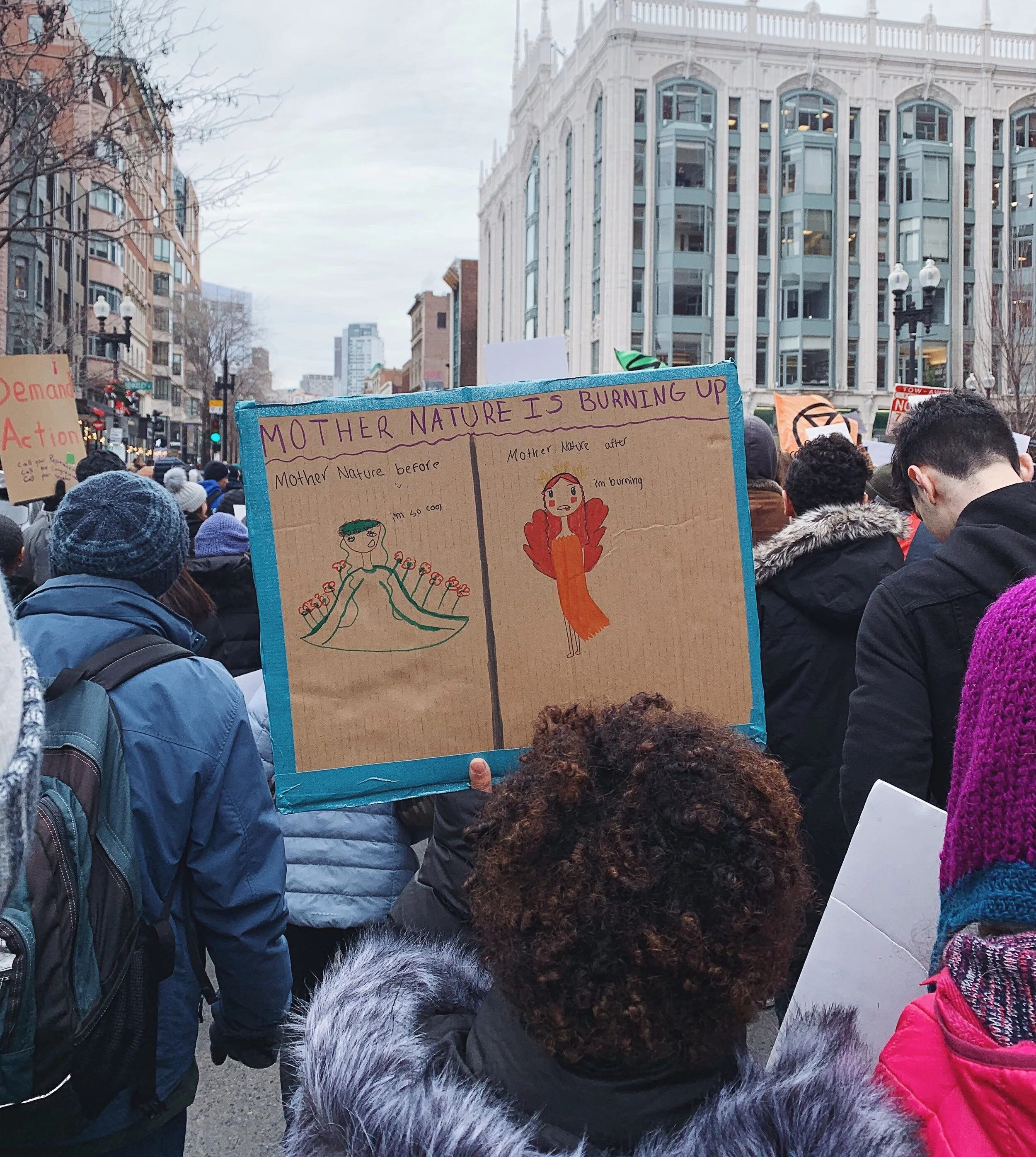by Sophie Kelly
In 2018, the Intergovernmental Panel on Climate Change (IPCC) published a landmark report warning of the dire impacts of a potential 1.5 degree Celsius global temperature increase by 2030. In other words, the IPCC told the world that we had 12 years to get carbon emissions under control before catastrophic climate change impacts become unavoidable.
Hundreds of schoolchildren take part in a climate protest in Hong Kong. Source: Kin Cheung/AP
Fast forward two years and 2030 looms even larger in our psyche. Compounded with rampant racism, a devastating pandemic, and political strife, the severity and scope of the climate crisis feels, at times, inescapable and unchangeable.
But the common saying, “youth are the future,” rings truer than ever. Concurrent with an administration set on denying climate change — among a long list of other environmental injustices — a widespread and highly effective youth climate movement has taken root in the United States and beyond.
Often grouped together by the media as one larger youth climate movement in the United States, Sunrise Movement, Zero Hour, and the U.S. Youth Climate Strike are three grassroots movements founded and led by youth that have all set out to engage people in climate action, and ultimately, envision a new reality in 2030.
Most striking about these three movements is the consistent emphasis on environmental justice, indigenous rights, and frontline communities. Zanagee Artis, co-founder of Zero Hour, has a lot of pride in knowing Zero Hour’s work has centered "colonialism, capitalism, racism, and patriarchy" as origins of the climate crisis and “built a movement around addressing the issue of climate change as a systematic injustice to marginalized peoples around the world.”
Original artwork of Isra Hirsi by Malia Shen. Source: Climable.org
Isra Hirsi, co-founder of the U.S. Youth Climate Strike, is steadfast in championing diversity and equity in the climate movement. She speaks with transparency about her own experiences of being disillusioned by environmental spaces because of their overwhelming whiteness. Recounting the speech she delivered at the Washington D.C. Climate Strike in September, 2019, she reflected how “it was discouraging how few of the faces in the crowd looked like me [..] the climate movement needs a drastic change toward diversity before we can truly be intersectional and effective.”
Hirsi and Artis, alongside many of their peers and environmental justice activists and scholars before them, confront the climate crisis not as an isolated occurrence, but rather as a symptom borne from a globalized world that has been deeply shaped by relationships of exploitation and inequality. This distinction is crucial in envisioning a world in 2030 that nourishes humans and the earth we inhabit alike.
Original artwork of Leah Thomas by Malia Shen. Source: Climable.org
Leah Thomas, also known by @greengirlleah, and founder of The Intersectional Environmentalist, is paving a way forward and communicating her profound understanding of intersectional environmentalism as a catalyst for real change.
Rooted in the concept of intersectionality coined by Kimberlé Crenshaw in the late 1980s, Thomas’s leadership on intersectional environmentalism is a continuation of Crenshaw’s body of critical race theory and feminist work. It also incorporates core values of environmental justice and climate justice activism.
Whether you have engaged with concepts like intersectionality or environmental justice extensively or never before, there is a place for you in the movement. With a cohort of trailblazing youth climate leaders at the helm, it is only a matter of time until the movement, like Isra said, is “truly intersectional and effective.”
Here are three things to start with today. If you are a youth in the Greater Boston area, consider volunteering with Young Environmental Leaders League (YELL) here at Climable (sign up now). Follow, support, and consider financially supporting young enviro leaders. @israhirsi, @vanessanakate, @mikaelaloach, @wawagatheru, & @xiyebeara are a few of our inspirations! Support Leah Thomas’s intersectional environmentalist pledge (pictured above) and commit yourself, your organization, or your community to these action items. As always, reach out to us with any comments, questions, and ideas for blogs you want to read!






